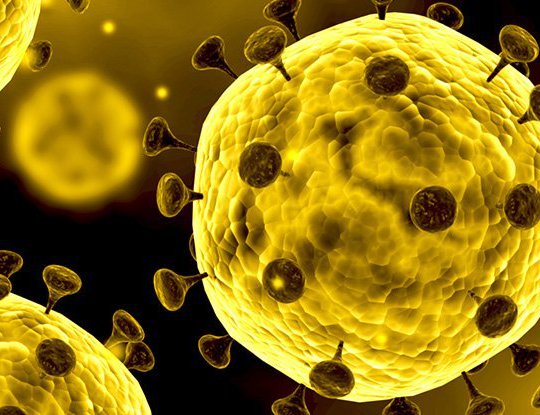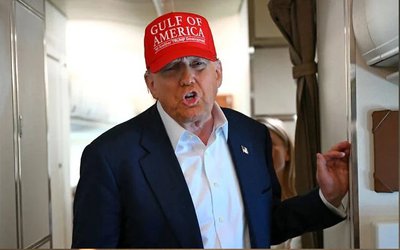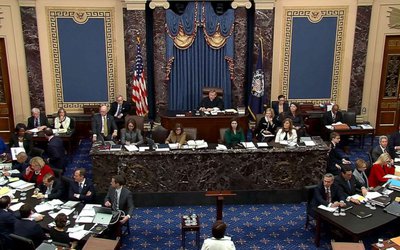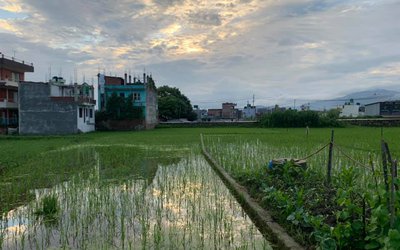
Political leaders are expected to demonstrate leadership in times of crisis. In recent week, heads of state or government have been addressing their citizens through TV on daily basis, concerning Covid-19 with instructions of hygiene and ‘social distancing’ including ‘hands washing’. Governments are informing their citizens about measures taken to combat the situation. The people’s trust on political leadership is essential to overcome current global health crisis.
The World Health Organization declared the outbreak of the Covid-19 as a global pandemic on 11 March 2020. Scientifically,Covid-19 antiviral medicines are still not available or presently being tested, a social science-based humanistic approach seems necessary to deal with the virus. The approach that I am suggesting here entails three key points; treating patients without discrimination, giving public access to critical information and earning public trust by political leadership itself.
Firstly, it is necessary that governments treat other countries’ citizens as their own.The European Union is essentially based on free movement of citizens within its member state borders. Ironically, at this time the Union has imposed border control on free movement of people as a frantic bid to slow the Covid-19 pandemic. This move may be a test of the principle of solidarity and humanity for the Union.This action is considered essential in time of crisis. At the same time, the Union member states are obliged to treat every individual,citizen or not,living within the national borders, without any discrimination whatsoever, during this border control period. This approach needs to be acknowledged by all countries of the world in dealing with the current crisis.
According to international law governments have responsibility to ensure public health care to all without discrimination. At the same time reasonable restrictions on the human right to free movement may be imposed for legitimate purposes in proportionate manner.
Given the global severity of Covid-19, governments are also obliged to use necessary quarantines and lockdowns and prevent entry not only to foreign nationals but also their own nationals. For example, the ‘Government of Nepal banned entry of all airline passengers, including Nepali nationals, from midnight March 20’. This decision of the government of Nepal is a reminder that a true home is where one is staying at a particular moment, states are mere social constructions, nationality is pure sentiment and the ultimate truth is humanity.
Furthermore, the Covid-19 pandemic is a new lesson for humanism, finding oneself in others, rising above and beyond shields of national borders and patriotism. The US President Donald Trump, however, has branded the Covid-19 as ‘the Chinese virus’ instead of working together with the Chinese government. The Chinese government expelled some American journalists in retaliation to Trump’s limiting the number of Chinese citizens working in Chinese state-run outlets in the US. These kinds of attitude and actions of the world’s two most powerful leaders are below the quality of humanism.
Secondly, public access to critical information is vital to ensure public confidence in governmental actions. A case in point regarding transparency and information sharing is the Chinese medical doctor, Li Wenliang who gave an early-warning about the coronavirus on December 30, 2019. He died by contracting the virus, while serving his patients, in February 2020. The early warning-information from Dr. Li was branded as ‘unfounded and illegal rumors’ by the Chinese authority. The control of initial information by Chinese leaders lead to public distrust in China and elsewhere. It is, nonetheless, noteworthy that China appears to have stabilized the Covid-19 pandemic situation and the country is sending medical aid to Italy, Spain, Iran and other countries.
Last but not least,winning public trust by heads of state or government is essential in dealing with Covid-19. Generally, governments are formed on the basis of people’s trust. But as we see there is increasing distrust in government handlings. For example, Britain’s handling of Covid-19 is considered as ‘confused and hesitant’ (The Guardian, editorial 15th March 2020); ‘Americans Don't Trust What They're Hearing From Trump On Coronavirus’ (NPR/PBS NewsHour/Marist poll).
In South Asia, India’s Prime Minister, Narendra Modi conveyed in the SAARC video-conference, to offer USD 10 million for the SAARC countries combating the Covid-19. The Prime Minister of Pakistan Imran Khan was absent in the conference. How can the two leaders assure the people of SAARC that they are working together controlling the pandemic? The SAARC itself has been in a period of hibernation for years, primarily because of sibling rivalries between India and Pakistan. It would perhaps have been more trust worthy had a representative from China been invited as a guest in the SAARC video-conference, since the country’s aggressive measures, according to the news, have helped control the coronavirus outbreak where it started.
The people of the world must be aware that there may be political leaders or parties in power, who will be eager to misuse the power in disguise of combatting Covid-19. There may be some who misuses power as Naomi Klein describes in ‘Shock Doctrine’. On the whole, however, Covid-19 pandemic has forced us to rethink on nationalism and patriotism, reject the divide between ‘us’ vs. ‘them’. To win the people’s confidence leaders need to prove hat they are not authoritarian, not racist and religious fundamentalists as well as to take a genuine anti-corruption stand.
Katak Malla
Writer from Stockholm

Katak Malla
LLD, Stockholm University
- Where Is Money For The Climate Loss And Damagefund?
- Dec 30, 2022
- Voices For Peace In Time Of The Danger Of Nuclear War
- Dec 07, 2022
- Sweden’s Neutrality Is Gone, Nepal’s non-Alignment Must Stay
- Jun 18, 2022
- Nepal’s Foreign Policy In Times Of Change And Uncertainty
- Jul 08, 2020
- Covid-19 And Alert Information In The Digital Age
- Apr 09, 2020












